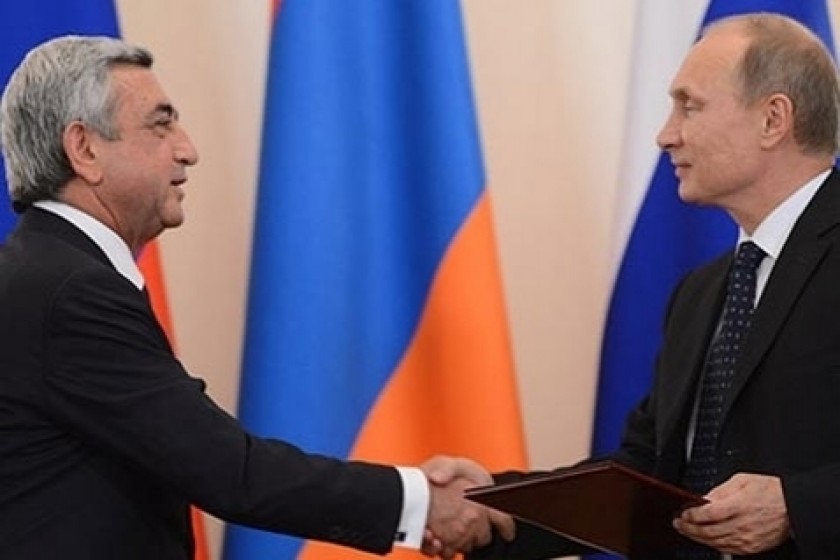
Commentary: Putin’s Grand Design to Destroy the EU’s Eastern Partnership and Consequences for Armenia
By Michael Emerson and Hrant Kostanyan
In a surprising volte face at his meeting in Moscow with President Putin on September 3, President Serzh Sargsyan of Armenia agreed to join the Russian-dominated customs union with Kazakhstan and Belarus.
Thus, in one short meeting, he scrapped the draft Association Agreement with the EU, which included a ‘Deep and Comprehensive Free Trade Agreement’ (DCFTA), whose negotiation over the past three years had advanced to the point that its initialling was firmly scheduled for the Eastern Partnership summit in Vilnius in November. And, at the same time, the Armenian President chose to deprive his country of the possibility to enter into free trade area agreements with other states, which any economy is free to do unless it is part of a customs union, in which case it becomes bound to a common external tariff.
This latter deprivation is particularly serious in Armenia’s case, since Russia’s external tariff is on average rather highly protective. In the process, Sargsyan has also precluded Armenia from pursuing the only plausible strategy to become an open, highly-skilled, small economy, following for example the model of Israel, with which it shares several features in common.
More broadly, it is worth noting that most of the world’s top-ten economies by GDP per capita, from Luxembourg to Singapore, are small but completely open countries. The economic case against joining the Russian customs union is all the greater because nothing in the DCFTA with the EU would have prevented Armenia from entering into a ‘high-quality’, free trade agreement1 with the Russian-led customs union.
Armenia is already party to the matrix of CIS free trade agreements, but many of these do not function well. Rather than join the Belarus, Kazakhstan and Russia customs union, why should Armenia not simply negotiate a high-quality free trade agreement with it? President Sargsyan has offered two main explanations for his baffling behaviour: Armenia depends on Russia to guarantee its security and its large diaspora in Russia make it natural for the two countries to have a close economic relationship. One might challenge the first explanation by noting that no other collective security arrangement, e.g. NATO, requires its member states to join a customs union led by the principal nation.
Michael Emerson is Associate Senior Research Fellow at CEPS. Hrant Kostanyan is an Associate Research Fellow at CEPS and a BOF (Special Research Fund) Research Fellow at the Centre for EU Studies (CEUS) in the Department of Political Science at Ghent University.
 Videos
Videos Photos
Photos
Comments (1)
Write a comment